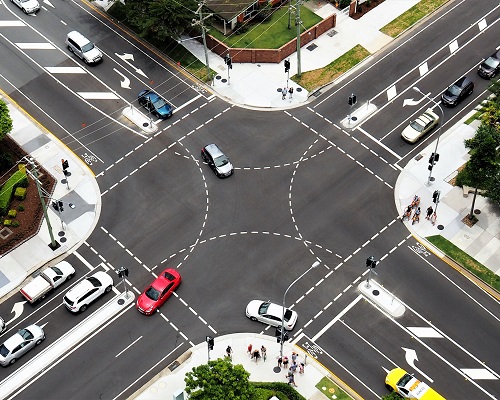<< Research Projects Overview << Year Three Projects Overview
Fathoming the Maximum Potential for Freight Sensitive Intersection Control

Associate Professor, ZACHRY Department of Civil Engineering
Texas A&M University
bwang@civil.tamu.edu
Proposal Summary and Objectives
Freight vehicles have significantly different attributes in kinetic movement, economic values (e.g. value of time) and environmental effect. Along with another project, also by TAMU, the objective is to increase the understanding of the point and network benefits of intersections, respectively. At a general intersection, it seeks to understand how to appropriately and optimally consider freight and passenger vehicles is a problem that has not been previously well addressed. Current video cameras, popularly used for actuated traffic control, have the potential to easily differentiate freight vehicles from passenger cars with today’s technology. Video camera can also obtain much real time vehicular information. In such an information driven environment, it enables signal control by considering relevant factors such as economic values. This study will examine the optimal mechanism of the general intersection signal control when a mix of freight and passenger traffic is present. A model and according algorithms will be developed to apply to the general urban intersections. Numerical test via simulation will be conducted to show the benefits of the developed model and algorithms. Discussion with industry will be taken place for inputs and potential application. We will reach out to the traffic control center of the City of College Station and deliberate with its in-house consultants about potential implementation. The goal of this study is to deepen the understanding of the tradeoffs for right of way between the different groups of vehicles and to provide an according mechanism to optimize the signal control.
Funding Amount: $60,000
Status: Active
Duration: Sep 1, 2019 - Jul 30, 2020